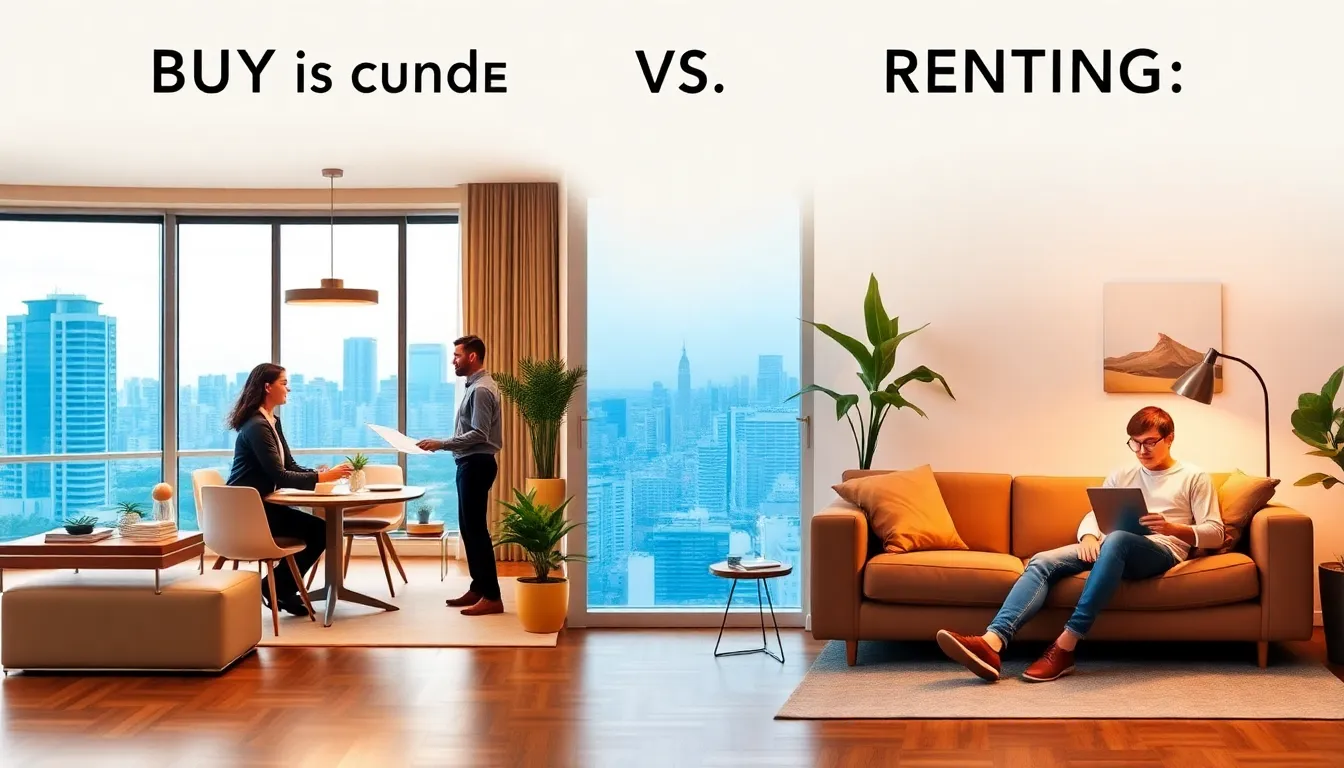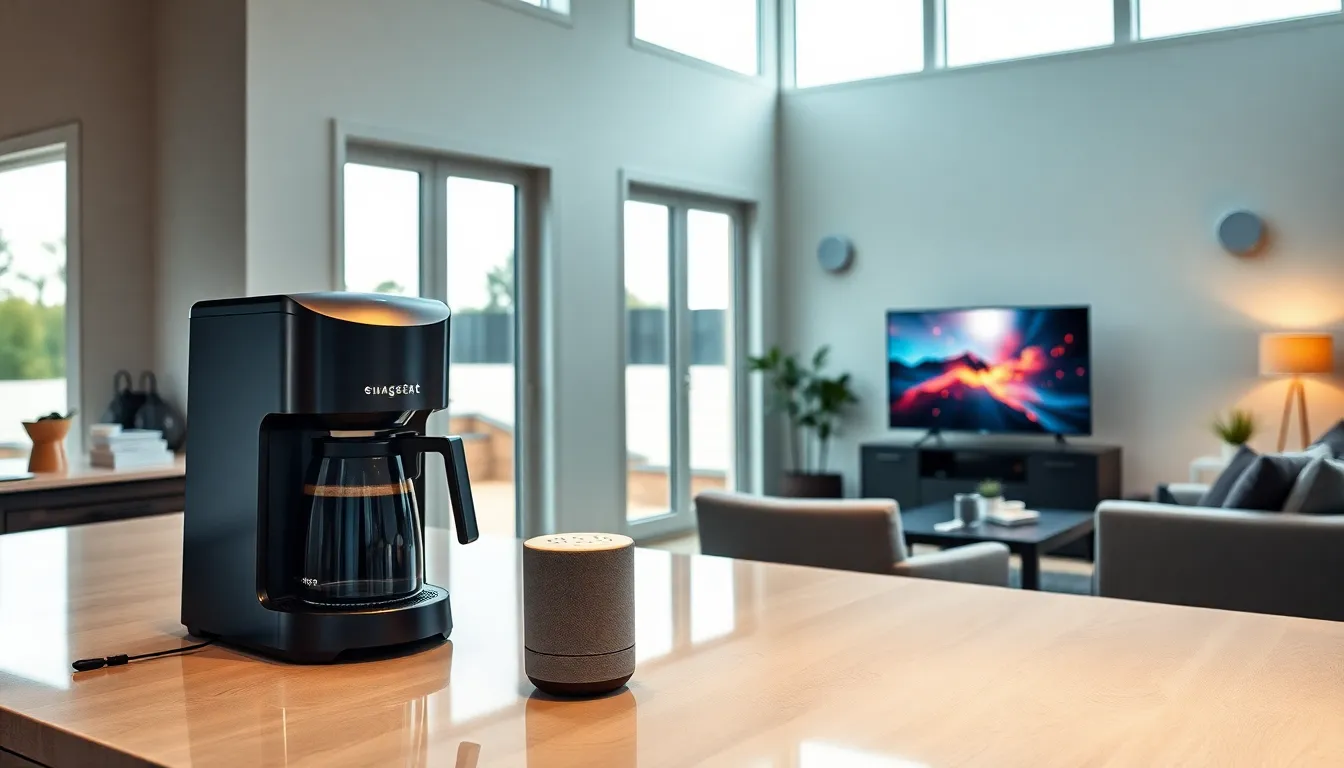As 2024 approaches, many are faced with a dilemma: rent or buy? In a world where you can binge-watch an entire series in one weekend, those decisions should be straightforward, right? Well, not so fast. Today’s real estate landscape is more puzzling than your favorite murder mystery. So, tighten your seatbelt, let’s explore the ins and outs of renting versus buying in 2024, so you’ll be ready to make a confident choice that’ll have you saying, ‘I made the right call.’
Table of Contents
ToggleCurrent Market Overview

The real estate market in 2024 is anything but stagnant. In fact, it’s a bit like a thrilling roller coaster ride, one minute you’re on top, the next you’re holding your breath as prices fluctuate. In many regions, home prices are showing signs of stabilization after years of rapid growth. Meanwhile, rental prices continue to soar, largely driven by demand and limited inventory.
According to recent statistics, rental rates have surged by an average of 7% in urban areas. This trend complicates the rent versus buy debate. On one hand, prospective buyers might be tempted to purchase a home to escape rising rent prices. On the other hand, those who prefer flexibility might find renting appealing even though the costs.
Overall, the current market presents a mixed bag of opportunities and challenges for both renters and buyers. Hence, understanding these dynamics is crucial for making an well-informed choice.
Economic Factors Influencing Decisions
Economic conditions wield significant power over decisions to rent or buy. Interest rates are a major player in this drama. While 2023 saw historically low rates that turned home buying into a feeding frenzy, 2024 has seen a slight uptick. Currently hovering around 6%, mortgage rates are still manageable but higher than the previous year.
Inflation also poses a sticky wicket for the housing market. As prices of goods and services rise, many potential buyers find themselves holding back. With the cost of living increasing, people have to choose between affording essentials and saving for that dream home.
Also, employment rates and wage growth can impact housing decisions. Individuals with stable jobs and promising salary trajectories might lean towards buying, while those uncertain about job security may prefer the flexibility that renting provides. It’s a balancing act that varies from person to person.
Benefits of Renting
Renting comes with a bag of perks that many overlook. For starters, there’s the flexibility factor, ideal for those who thrive on spontaneity. Whether relocating for work or simply wanting a change of scenery, renters can move without dealing with the long-term commitment of purchasing.
Maintenance woes? Forget about it. Renters typically aren’t responsible for upkeep, allowing them to enjoy their homes without worrying about a leaky roof or broken furnace. This can save both time and money, particularly for younger adults or those with busy lifestyles.
Also, renting provides access to desirable locations that may be out of reach for many buyers. Expensive urban areas often have rental options that allow individuals to live close to work or nightlife without the financial burden of purchasing property. The savings can also be directed toward investments or experiences, like traveling or furthering education.
Drawbacks of Renting
But, renting isn’t all sunshine and rainbows. One major downside is the lack of equity building. Renters pour money into their monthly payments but see no return on that investment. In contrast, homeowners gradually increase their equity as property values rise.
Besides, rental agreements can feel like a game of Monopoly, with landlords holding the power. Renters often face uncertainty about lease renewals or unexpected rent increases, leaving them feeling vulnerable. This can make long-term planning a bit tricky, especially if lifestyle changes aren’t accounted for.
Finally, personalization is limited in rental properties. Renters can only do so much with decor and modifications, especially if the landlord has strict rules against any significant changes. For those who yearn for a place they can truly call their own, this might be frustrating.
Benefits of Buying
Buying a home comes with an array of enticing benefits. Most notably, homeownership offers stability, allowing individuals to plant roots in a community. Families often prefer this option to provide their children with a consistent environment.
Also, purchasing opens the door to building equity. Over time, homeowners can leverage increases in property value and potentially profit from a sale down the line. It’s like putting money into a piggy bank that has a chance of growing.
Tax incentives also come into play. Homeowners may benefit from deductions on mortgage interest and property taxes, which can lighten the financial load. Plus, there’s no landlord breathing down their neck, allowing homeowners the freedom to personalize and renovate as they please. This personal touch can turn a house into a home.
Drawbacks of Buying
On the flip side, buying a home isn’t all roses. The initial financial outlay can be daunting, think down payments, closing costs, and various fees that can add up quickly. Many first-time buyers find themselves in a cash crunch, navigating a maze of costs.
Also, homeownership brings responsibilities that renters often dodge. Maintenance, repairs, and property taxes now fall squarely on the owner’s shoulders. This can become overwhelming, particularly for those who aren’t handy or have limited time.
Market volatility is another factor that buyers must consider. Homes can depreciate in value just as easily as they appreciate. For individuals who purchase at the market’s peak, this can lead to financial strain if they need to sell during a downturn.






